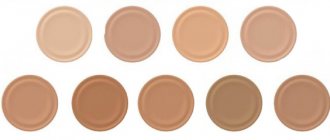This wonderful plant is also called nigella, nigella sativa and kalonji. It grows in South and South-West Asia. Black cumin seeds were found in the tomb of Pharaoh Tutankhamun in Egypt. In ancient times, nigella was already cultivated by Jews, Arabs and Indians. Now it is grown all over the world. Black cumin seeds, which have a pleasant nutty taste, are used as a seasoning in various national cuisines. Nigella should not be confused with true cumin (cuminum cyminum), black pepper, black sesame or black cogosh.
Medicinal properties of black cumin
Besides cooking, Nigella sativa also has many medicinal uses. The seeds have been used in traditional medicine in the Middle East as a natural remedy for ailments ranging from abscesses to herpes zoster for over 2,000 years. The Quran mentions that the Prophet Muhammad said: “This black seed cures all diseases except death.”
Composition of black cumin (per 100 g)
- Manganese (8.53 mg)
- Copper (2.6 mg)
- Iron (9.7 mg)
- Lipids (31.16 g)
- Phosphorus (543 mg)
- Magnesium (265 mg)
- Calcium (about 570 mg)
- Zinc (6.23 mg)
- Protein (22.8 g)
- Potassium (808 mg)
- Dietary fiber (6.03 g)
- Sodium (17.6 mg)
“Most of the therapeutic properties of black cumin seeds are due to the presence of the phytonutrient thymoquinone, which is the main bioactive component (30-48%), as well as thymohydroquinone and thymol,” says Josh Axe, DND, co-founder of Ancient Nutrition Supplement. “These substances have pronounced antioxidant and anti-inflammatory properties.”
Oil prepared from black cumin seeds also has unique healing properties.
Cumin with honey to strengthen immunity
A very popular recipe in folk medicine in Arab countries, which is recognized as safe (if you have any doubts, you should first consult your doctor).
To prepare a nutritious fortified drink, you need to mix ½ teaspoon of black cumin seed powder with a teaspoon of honey and pour ½ glass of warm water (not higher than 40 ° C). Children under 12 years of age need half the indicated dosage. This amount of drink should be divided into three doses and drunk 10-15 minutes before meals.
Helps fight cancer
Due to its powerful phytochemical and antioxidant properties, black seed oil has been shown to help treat cancer. Croatian scientists evaluated the antitumor activity of thymoquinone and thymohydroquinone in an animal study and found that these substances contained in nigella oil helped reduce tumor cells by 52%. Research in recent years also shows that thymoquinone helps induce apoptosis (programmed cell death) in leukemia, breast and brain cancer cells. Additionally, researchers from the Sidney Kimmel Cancer Center at Jefferson Health found that black cumin seeds help treat and prevent pancreatic cancer. The antitumor activity of black cumin is explained by its high anti-inflammatory properties.
Botanical characteristics of caraway
Cumin is a biennial plant belonging to the Apiaceae family. The plant does not grow more than 1 meter in height. Cumin has a powerful, spindle-shaped root. On the smooth stem there are alternate leaves, which become smaller and smaller in size from the bottom of the stem to the top. In the first year of life, only a basal rosette of leaves is formed in caraway seeds, and already in the second year a stem is formed. Each shoot has one flower inflorescence.
Caraway flowers are small, white, and consist of 5 petals. The fruit of caraway is an oblong-shaped viscocarp, which, when ripe, splits into 2 half-fruits. At the moment of fruit ripening, the stem first becomes brown and then completely dries out.
Cumin blooms in early to mid-summer. The fruits ripen at the end of summer, but only in the second year of the plant’s life. Cumin is distributed throughout the European part of Russia, the Caucasus, Siberia and Central Asia. The plant prefers sandy and loamy soil. Cumin grows in forests, meadows, forest edges and roadsides.
Growing cumin
The plant loves fertilized soil and lighted places. Cumin can withstand any frost, so you don’t even need to cover it for the winter. Cumin is propagated by seed. The plant develops best if the seeds are sown in the spring, since the top layer of soil still contains a lot of moisture, and caraway seeds love moist soils. Before sowing caraway seeds, you need to add superphosphate and potassium fertilizers to the soil, adding most of the humus. Considering the fact that cumin seeds germinate slowly, they need to be soaked in water for 2 days, remembering to change the water from time to time. When the seeds germinate, they need to be dried. Before sowing the seeds, the soil is dug up again. Seeds are planted 2, 3 or 4 cm into the soil, this depends on the structure of the soil itself. Shoots will appear after 3–4 weeks.
Due to the low amount of moisture in the soil, seedlings may be rare. When 2 true leaves appear on the cumin seedlings, if the planting is dense, thinning is done. Already at the end of summer the plant will have up to 15 leaves.
Caring for caraway seeds is not difficult, since it is enough to regularly water, weed and loosen the soil.
Promotes Liver Health
The liver is one of the most important organs in the body. Almost all toxins pass through the liver. Bile is needed to digest fats. Black cumin is useful for those who have poor liver function due to side effects from taking medications, alcohol abuse, and illness. In a recent study on laboratory animals, scientists found that black seed oil improves liver function and helps prevent damage and disease to this important organ.
Benefits of black cumin oil for men
The use of oil is especially necessary for men. Natural medicine is one of the best methods of restoring potency. It is an aphrodisiac, therefore it improves libido, seminal fluid condition and sperm activity.
The tool also helps eliminate simplicity problems. Suppresses the unpleasant symptoms of pain, burning, normalizes urination and effectively destroys the cause of the disease. Unlike drugs, the therapeutic effect of oil is less rapid, but there are no contraindications or side effects.
Helps you lose weight
According to the Journal of Diabetes and Metabolic Disorders, black seed is one of the most bioactive natural remedies on the planet. There is also a large body of research showing that taking nigella supplements can help lower body mass index and reduce waist circumference. It is also important to note that none of the studies reported serious side effects from the use of such drugs.
Protects skin
In a study conducted by Iranian scientists, nigella products were found to be as effective as pharmaceutical drugs for treating eczema. “At the same time, no serious side effects were observed, unless, of course, there is individual intolerance,” says Josch Ax. “While dermatological ointments and creams can cause swelling on the skin and in the larynx, tingling in the mouth, chest discomfort, difficulty breathing, changes in skin tone, pigmentation, and bruises.”
Good for hair
Black cumin oil is not only a good natural remedy for skin care, but also for hair. Nigella contains nigellon, which research has shown to have antihistamine properties. The oil from this plant can help with hair loss due to androgenic alopecia and alopecia areata. Possessing antioxidant, antibacterial and anti-inflammatory properties, Nigellon also improves the overall condition of the hair and scalp, preventing dandruff and dryness.
Chemical composition of caraway oil
Black cumin
is the common name for the seeds of a plant called Nigella sativus. The flower grows in Southern Europe, the Middle East, and the countries of southwest Asia. In Russia the plant is known as nigella.
Nutrient composition of one teaspoon of black cumin oil:
- calorie content: 45 cal.;
- protein: 0 grams;
- fats: 5 grams;
- carbohydrates: 0 grams;
- fiber: 0 grams.
The product can be classified as dietary. Cumin oil is rich in calcium, zinc, iron, copper, thiamine, niacin, phosphorus and folic acid.
Improves fertility
According to one study, black cumin is an effective remedy for improving male fertility. In one study, scientists found that taking nigella oil has a beneficial effect on the quality and volume of sperm - the number of sperm increases and their motility improves. There are also a number of studies that have shown that black cumin has a positive effect on sex hormones.
How to use black cumin
There are many ways to use nigella seeds and oil. “The oil can help with some skin problems, such as acne and eczema, due to its antibacterial and anti-inflammatory properties,” says Josh Axe. - It is also considered useful for psoriasis and rosacea. If you are using black seed oil topically, always dilute it with a few teaspoons of a carrier oil, say coconut or almond. Nigella oil can be added to homemade massage oils and lotions. For a warming massage, simply add one drop to one tablespoon of carrier oil. To improve the health of your hair and scalp, it is recommended to add a few drops of oil to your shampoo and conditioner.”
Thanks to its spicy flavor, high-quality black cumin seed oil can be used in all types of recipes, from main meat dishes to soups. You can also add it to drinks such as lattes, teas, cocktails.
There are biological supplements with black cumin in the form of capsules. What dose is considered optimal? It all depends on the individual characteristics of the body and state of health. As a rule, experts recommend the following amount.
- For diabetes: 1 g of black cumin seed powder twice a day for 12 months.
- For high blood pressure: 0.5-2g black cumin seed powder daily for 12 weeks or 100-200ml oil twice daily for eight weeks.
- To improve sperm quality: 2.5 ml of nigella oil twice a day for two months.
- For asthma: 2 g of ground black cumin seeds for 12 weeks. Alternatively, take 15 ml/kg of black cumin seed extract daily for three months.
Benefits of black cumin seeds and its oil
Scientists have been studying the properties of seeds and oils for only a couple of decades, so surprisingly little is known about their composition and beneficial qualities. Perhaps the whole point is that black cumin is popular primarily in Muslim eastern countries, where the traditions of ancestors are not usually questioned (including scientific ones). But the very fact that cumin has been used for healing, healing and cooking for many centuries speaks for itself. We are sure that in the coming years more scientific data will appear about this amazing seasoning, but for now let’s study the already available proven information.
Some scientists, for example, believe that black cumin seeds may help strengthen the immune system, fight cancer, and reduce swelling and allergic reactions by acting as an antihistamine.
The chemical composition of the seeds has not been fully studied, but it is known for sure that they contain essential oils, melanthol (which is also just being studied), vitamins and microelements:
- calcium,
- iron,
- zinc,
- copper,
- thiamine,
- niacin,
- phosphorus,
- folic acid.
It was possible to establish that the medicinal properties of the seeds are mainly due to the action of the active compound thymoquinone, which has antioxidant, anti-inflammatory and other therapeutic properties that protect cells from damage and the body from chronic diseases.
This allows scientists to talk about the effectiveness of black cumin seeds or oil in treating a number of diseases.
Acne and atopic dermatitis
Research shows that applying a gel containing black seed extract to the skin can help treat skin inflammation and irritation, including age-related or those associated with medications and hormonal imbalances.
Asthma
It is believed that consuming black seed along with asthma medications may alleviate coughing and wheezing and improve lung function in some people with lung diseases.
Black cumin is also effective as an adjuvant for ailments that cause difficulty breathing or phlegm discharge from the lungs (for example, chronic obstructive pulmonary disease). It is noted that this is true only for those participants in scientific experiments who simultaneously used inhalers prescribed by a doctor with other specialized medications.
Diabetes
Taking black cumin may help balance blood sugar levels in people with diabetes and normalize cholesterol levels in those who need it (including people with prediabetes).
Infection of the digestive tract that can lead to ulcers
Some studies suggest that taking black cumin powder along with other medications may help get rid of the infection.
Chest pain (mastalgia)
Applying a gel containing black seed oil to the breasts is known to reduce pain in women suffering from mastalgia.
Heart damage caused by certain cancer drugs (anthracycline cardiotoxicity)
Taking black seed oil may prevent heart problems in children being treated with antibiotics for chemotherapy. It is also useful for protecting the immune system during treatment of cancer: for example, with regular consumption of black cumin oil and seeds, the number of fever attacks due to a low number of white blood cells (neutropenia) is reduced.
hay fever
Taking black seed oil daily may relieve allergy symptoms in people with hay fever.
Long-term kidney disease (chronic kidney disease)
Some people with CKD eat a low-protein diet and take supplements to prevent nutritional deficiencies. It has been found that taking black seed oil can help improve the functioning of the excretory system.
Memory and thinking abilities (cognitive function)
Black cumin seeds and oil are known to help improve memory and concentration to solve complex problems in some cases.
Menstrual cramps (dysmenorrhea)
Oil massage of the scalp (a few days before and during menstruation) can reduce cramping. This is an ancient Arabic method of curing pain: there is no scientific explanation for it yet, but it really works.
Digestive disorders (dyspepsia)
Taking a remedy consisting of black cumin oil, honey and water reduces unpleasant symptoms. Of course, in this case, a person with a digestive disorder should adhere to a special diet and take all medications prescribed by the doctor.
Mild gum disease (gingivitis)
Some research suggests that applying black seed extract around teeth and gums may help reduce plaque, swelling and redness from gingivitis. Let us emphasize once again that the use of black cumin is an auxiliary procedure and no one has canceled the same cleaning at the dentist.
High cholesterol
Constant intake of crushed seeds increases the level of “good” cholesterol (as high-density lipoproteins are called) in the blood and reduces the amount of “bad” (low-density lipoproteins) and fats (triglycerides).
Obesity
Taking black cumin seed oil or powder can help you shed extra pounds. Obviously, for a long-term effect, it is necessary to deal with possible hormonal imbalances, balance your diet, drink a lot of water and exercise within reasonable limits.
Osteoarthritis and rheumatoid arthritis
Research shows that rubbing black seed oil on the knee for 3 to 4 weeks helps relieve joint pain caused by osteoarthritis or rheumatoid arthritis. The oil should be taken orally at the same time.
Dry nose in older people and children
The use of a nasal spray containing black seed oil reduces dry mucous membranes, blocked nasal ducts, and crusting of the nostrils in elderly patients with age-related nasal irritation. It is very good to use this spray for children, especially during colds and viruses.
A disease that causes white patches to appear on the skin (vitiligo)
Research by scientists has shown that applying a cream containing black cumin oil for six months can significantly improve skin color in some cases of vitiligo.
Black cumin seeds and oil are commonly used in folk medicine in a number of countries (although scientists have not yet received sufficient evidence about the effectiveness of such treatment) for the following diseases:
- decreased immunity,
- bronchitis,
- constipation,
- digestive problems, including intestinal gas and diarrhea,
- chronic fatigue (physical and emotional),
- fever,
- flu,
- headache,
- haemorrhoids,
- psoriasis,
- menstrual irregularities.
Possible side effects
Some people may be intolerant to black cumin. When used externally, it can manifest itself as an allergic rash. Side effects when taken orally include: upset stomach, vomiting, or constipation.
Before using black seed oil topically on your skin and hair, it is recommended that you do a test to ensure you do not have a negative reaction to the product. Avoid contact of oil with eyes and mucous membranes when using.
Consult your physician before using black seed oil if you are pregnant, nursing, currently taking any medications, or have a chronic medical condition such as diabetes, hypotension, or a bleeding disorder. If you are taking black seed oil and are scheduled for surgery, it is recommended that you stop taking it at least two weeks before surgery.
As with all natural oils, be sure to store black seed oil away from heat and light.
Use of caraway seeds
Cumin is used for pneumonia, bronchial asthma, tuberculosis and prostate adenoma. The plant is often recommended for colds as a chest rub. Cumin is also used in the presence of skin parasites, for example, mites and others.
Cumin is used for dyspepsia in children, gastritis, anemia and hypogalactia (insufficient milk production in a nursing mother). A decoction of cumin is also recommended for the accumulation of gases in the intestines. Cumin is included in gastric, sedative and carminative preparations.
A decoction of cumin seeds for colds and hemorrhoids. Take 2 teaspoons of plant seeds and pour 500 ml of boiling water over them. Place on the fire for 10 minutes. Strain the mixture and take 100 ml 1 hour before meals three times a day. The decoction has an expectorant effect for colds, and a laxative for hemorrhoids.
Caraway tonic. Take 200 grams of cumin seeds and grind them into powder. Fill them with milk so that it covers the seeds completely. Let it sit for 12 hours. Next, add a little sugar and take 50 ml three times a day as a strengthening agent.
Cumin against malaria. To prepare this medicine, you need to take two grams of seeds and combine them with two tablespoons of bitter gourd juice. Mix the ingredients well and take as needed.
Cumin against worms. Taking 10 grams of cumin seeds, fry them in a frying pan without oil. Next, add 15–20 grams of onion to them. We take this medicine one spoon in the morning on an empty stomach.
Cumin for urinary tract infections. Take cumin seeds (5 grams) and fry them, add juice squeezed from one lemon to them. Add 1 gram of sea salt and half a glass of water to this. Mix everything and take it twice a day in the mornings and evenings.
Caraway tincture. Take 15 grams of cumin and grind it into powder. Next, pour the powder into a glass bottle and pour a glass of vodka. Close the jar tightly and place the tincture in a dark place for 2 weeks. After straining the finished medicine, take 1 teaspoon each time before meals. The tincture improves digestion, cleanses blood vessels and relieves gases in the intestines.
Cumin for weight loss. Cumin has many beneficial substances, and one of them is that the plant promotes weight loss. Weight loss will occur due to the diuretic properties of the herb. Cumin also normalizes metabolic processes in the body and helps relieve constipation. For weight loss, prepare a decoction of cumin seeds (given above).









